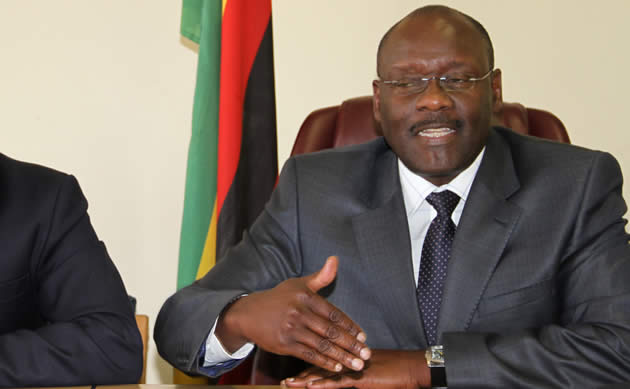
The Sunday News

THE Government has directed training institutions to reduce enrolment of student nurses into nursing schools by over 80 percent, as it battles to deal with the swelling numbers of qualified nurses who have not been employed due to the vacancy freeze in the civil service, Sunday News can reveal.
Government’s 15 training institutions on average admitted about 60 students per intake twice a year, but they have since been ordered to admit not more than 10 students per intake.
The order comes into effect from September when the nursing schools have their next intake.
Nurses, who graduated and have not been practising for the past three years, will also be required to undergo retraining before they start work.
Sources in the Ministry of Health and Child Care told Sunday News last week that the move to cut enrolment of student nurses was due to lack of funds as well as meant to contain the swelling number of unemployed qualified nurses.
More than 2 800 qualified nurses are jobless after Government imposed a freeze on recruitment of nurses.
Last year about 600 health workers’ posts were declared vacant but the posts have not been filled as Treasury is yet to secure funds to allow the Health Services Board to recruit.
“We have been told not to enrol more than 10 students because of lack of resources. The main reason is that Government cannot continue to train nurses who will be jobless at the end of the day. We cannot continue to train people so that they sit at home. So the idea is to train a few, while modalities on absorbing the jobless ones are worked on,” said a source who spoke on condition of anonymity.
“The communication we got from head office is that qualified nurses who have not been practising for the past three years will also need to undergo training before they are employed. The assumption is that the nurses would have lost most of the skills due to redundancy”.
There have also been reports that Government intends to stop nurse training, but Minister of Health and Child Care Dr David Parirenyatwa quashed the speculation at a graduation ceremony of United Bulawayo Hospitals nurses in Bulawayo, last month.
Health Services Board public relations executive Mr Nyasha Maravanyika could neither confirm nor deny the latest developments on reduction of student nurse enrolment, referring the matter to the permanent secretary in the Ministry of Health and Child Care Dr Gerald Gwinji.
“That is an administrative issue which is dealt with by the Ministry of Health and Child Care. I suggest you contact the permanent secretary, he will be the best person to give you an answer on those issues.”
Dr Gwinji was, however, unavailable for comment as his mobile phone went unanswered until the time of going to print.
“What I can say is that there are quite a number of qualified nurses who are not employed because the nurses’ establishment is full. We are, however, working on reviewing the nurses’ establishment which should see a substantial number of nurses being absorbed into the system. This, however, would be subject to Treasury concurrence,” said Mr Maravanyika.
On the 600 posts that were declared vacant by Government last year and are yet to be filled, Mr Maravanyika said the Health Services Board was still waiting to get a go-ahead from Treasury to start recruiting.
Zimbabwe Nurses Association president Mrs Regina Smith said Government should be putting more effort into reviewing the nurses’ establishment instead of reducing enrolment at nurse training institutions.
The country’s nurses’ establishment was last reviewed in 1983.
“The biggest challenge is that we are short staffed and there is a need to review the nurses’ establishment. Instead of reducing enrolment, Government should be working on employing more nurses to deal with the shortage of personnel in the health sector.
“The recommended nurse to patient ratio is one nurse per patient in the Intensive Care Unit and maternity wards and one nurse to three patients in the medical and surgical wards. That is not the situation, however, as we have one nurse attending to 15 patients,” she said.
On the retraining of nurses, Mrs Smith welcomed the move but said her association, however, did not expect the nurses to be required to undergo rigorous training involving the theoretical aspects of the nurses training programme.
“Of course there are some practical skills that need to be refreshed now and again if someone has gone for long periods without practising. That is what we expect the retraining programme to focus on mainly not theory. For us we feel the programme should be more about the nurse demonstrating that they still have the skill rather than teaching them all over again,” she said.
The Health Services of Board has been on record calling on Government to lift the freeze on nursing vacancies and employ the redundant qualified nurses, with the shortage of health personnel said to be affecting service delivery in the health sector.



